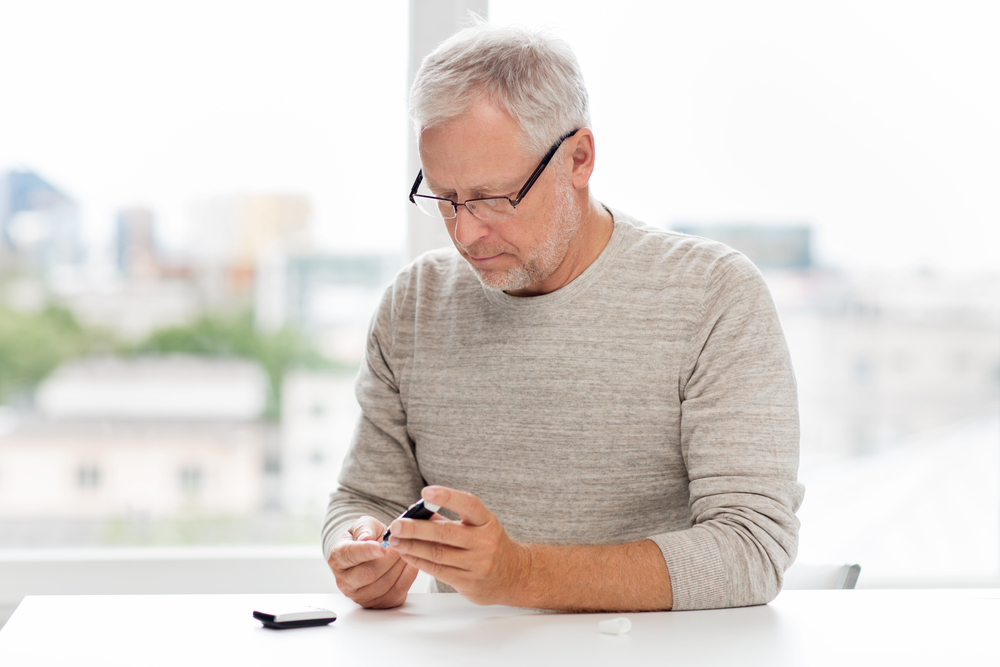Type 1 Diabetes and Hyperglycemia: High Sugar
Symptoms of hyperglycemia

One of the hallmarks of type 1 diabetes is hyperglycemia, or high blood glucose (sugar). There’s a very good reason that glucose levels climb high in type 1 diabetes, and that’s a lack of insulin. When the pancreas shuts down insulin production, blood glucose levels start to climb. If there is sufficient insulin in the bloodstream, say, from an insulin injection or insulin infusion from a pump, glucose levels (hopefully) return to a safe level. If there is little or no insulin available, the situation becomes serious, both in the short term and the long term.
Symptoms of hyperglycemia
How do you know if your blood sugar is too high? Chances are you’ve experienced hyperglycemia and you’ve had some telling symptoms. The most common signs and symptoms of hyperglycemia are:
· Feeling thirsty
· Feeling hungry (even “hangry”)
· Frequent urination
· Blurry vision
· Feeling very tired and lethargic
If your blood sugars are high for a longer period of time, you might realize that you’ve lost weight — despite eating your usual meals and snacks, or even eating more than usual because you’ve been hungry. You might also find yourself with a yeast infection or a urinary tract infection, or a cut or a sore that seems to be taking forever to heal.
Blood glucose levels can get very high (more on that in a moment) and at this point, you may develop some more serious symptoms, such as:
· Nausea or vomiting
· Stomach pain
· Shortness of breath
· Fruity-smelling breath
· Confusion
· Weakness
What causes hyperglycemia?
If you have type 1 diabetes, it’s almost inevitable that you will have hyperglycemia at some point. Obviously, the goal is to minimize episodes of hyper- and hypoglycemia as much as possible, keeping glucose levels in a safe range for as long as possible. But doing so requires education, support — and a lot of detective work on your part.
Some common factors causing hyperglycemia include:
· Not enough insulin
· Not injecting insulin properly
· Using expired insulin
· In pump users, a displaced infusion set or a kink in the infusion set or tubing
· Changes in food intake; for example, eating too much carbohydrate, eating higher-fat foods, eating more often or eating larger amounts of food
· A decrease in your usual level of physical activity
But other things can lead to high blood glucose levels, as well, and these may not be what initially comes to mind. Examples include:
· Being under stress due to, say, issues at work, school or home; losing a job; or getting divorced
· Illness, such as a cold or sinus infection, or something more serious, like having the flu or appendicitis, for example
· Injury, such as a sprained ankle
· Changes in your sleep. Burning the midnight oil, insomnia or a noisy sleeping partner can disrupt your sleep which, in turn, can cause hormonal changes that spike glucose levels.
· Menstrual cycle. Some women find that hyperglycemia occurs a few days before their period.
· Medication. Certain non-diabetes medications can raise blood sugar, especially steroids (e.g., prednisone), thiazide diuretics, some antipsychotic medications, some antibiotics, and decongestants.
Hyperglycemia can also occur as a rebound from a low blood sugar. If your blood sugar drops, counterregulatory hormones may kick in, signaling the liver to release glucose. You might also have hyperglycemia if you over-treat a low.
Psychosocial issues may lead to hyperglycemia, too. Diabulimia, an eating disorder in a person with diabetes (typically type 1 diabetes) is a form of bulimia whereby the person intentionally restricts or omits insulin in order to lose weight. Some people may omit insulin injections in public situations, such as in a restaurant or at work due to inconvenience, embarrassment or a desire to not let others know about their diabetes. Alcohol abuse is another instance that can lead to hyperglycemia.
Finally, economic challenges are a factor that can lead to hyperglycemia. The inability to afford insulin can affect being able to take the prescribed amount of insulin.
